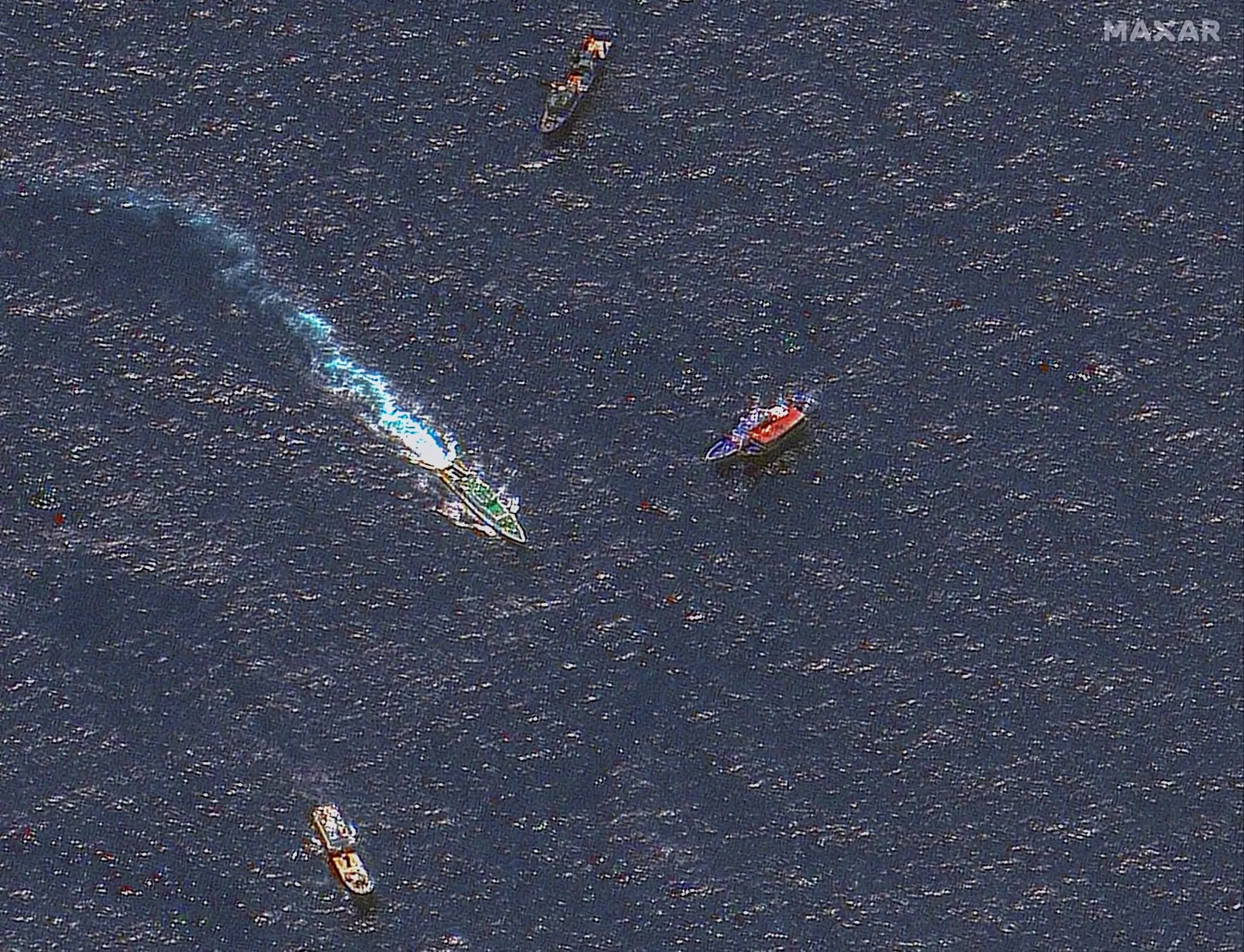The Philippines has once again stood its ground against China as it summoned a senior Chinese diplomat and lodged a strong protest against Beijing on Monday. This comes after a recent standoff between the two countries in the disputed South China Sea.
The Philippines, along with other Southeast Asian nations, has been embroiled in a territorial dispute with China over the South China Sea for years. The Philippines claims sovereignty over the area, which is rich in natural resources and a vital shipping route, while China claims almost the entire sea based on its historical nine-dash line.
The recent standoff between the Philippines and China occurred near the Scarborough Shoal, a rocky outcrop located within the Philippines’ exclusive economic zone. The Philippine Coast Guard reported that Chinese vessels, including a Chinese Coast Guard ship, were spotted in the area, which prompted the Philippines to take action.
In response, the Philippines summoned a senior Chinese diplomat and lodged a strong protest against Beijing. The Department of Foreign Affairs (DFA) released a statement saying that the Philippines “strongly protested the incessant, illegal, prolonged, and increasing presence of Chinese fishing vessels and maritime militia vessels in Philippine maritime zones.”
The DFA also expressed concern over the “swarming and threatening presence” of Chinese vessels, which it said violates the Philippines’ sovereignty and sovereign rights under the United Nations Convention on the Law of the Sea (UNCLOS).
This is not the first time that the Philippines has raised its concerns over China’s actions in the South China Sea. In 2016, the Philippines won a landmark case against China at the Permanent Court of Arbitration in The Hague, which invalidated China’s nine-dash line claim and recognized the Philippines’ sovereign rights in the area.
Despite this ruling, China has continued to assert its claims and has even built artificial islands and military facilities in the disputed waters. This has raised tensions in the region and has led to several incidents, including the recent standoff between the Philippines and China.
The Philippines’ strong stance against China’s actions in the South China Sea is commendable. It shows the country’s determination to protect its sovereignty and uphold international law. The Philippines has consistently called for a peaceful resolution to the dispute and has urged China to respect the rule of law.
The Philippines’ protest against China also highlights the importance of the UNCLOS in resolving maritime disputes. The UNCLOS, which both the Philippines and China are signatories to, provides a legal framework for the use of the world’s oceans and promotes the peaceful settlement of disputes.
It is crucial for all parties involved to respect the UNCLOS and abide by its provisions. This will ensure the stability and security of the South China Sea, which is crucial for the economic and social development of the region.
The Philippines’ actions also send a strong message to the international community that it will not back down in the face of China’s aggressive actions. The Philippines has shown that it is willing to stand up for its rights and will not be intimidated by China’s military might.
The Philippines’ protest against China is a reminder that the South China Sea is not China’s “lake” and that other countries have a stake in the region. It is essential for all countries to work together to maintain peace and stability in the South China Sea and to find a peaceful resolution to the dispute.
In conclusion, the Philippines’ summoning of a senior Chinese diplomat and its strong protest against Beijing is a clear demonstration of the country’s commitment to protecting its sovereignty and upholding international law. The Philippines’ actions should serve as a wake-up call for China to respect the rule of law and work towards a peaceful resolution of the South China Sea dispute. It is only through cooperation and respect for international law that the region can achieve lasting peace and stability.





![Complete BritRail Pass Guide [Types, How to Use It, Pros + Cons]](https://inside-news.uk/wp-content/uploads/2025/06/00221EB4-BCA2-4DBB-6CD4-83DBC37D71FA-120x86.webp)
















